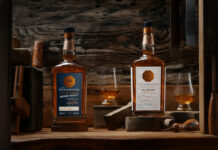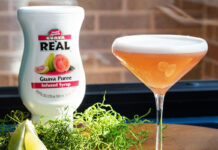

Recent takeovers mean better wine support for operators
SCOTLAND’S wine supply landscape has changed significantly in the last 12 months.
From Wine Importers’ acquisitions of Harris Fine Wines of Glasgow and Cockburns of Leith to Heineken’s decision to offload Waverley TBS in June 2010, and the purchase of Forth Wines from Matthew Clark by a group of drinks industry businessmen last August, to William Morton’s acquisition of Inverarity Vaults earlier this month, there’s been no shortage of consolidation among suppliers.
But what do these changes in ownership mean for the trade? Will it impact on the availability of wines?
Ian Cumming, commercial director at Forth Wines, reckons the activity could ultimately benefit operators.
“The changes in ownership within the wholesale business have undoubtedly brought a renewed sense of energy and excitement to the industry and that can only be a good thing for the licensed trade operator,” he said.
“Attracting people out to spend in the current climate demands creativity within the trade and operators are able to take advantage of the changes within the supplier side to drive promotional activity.
“To be successful in the current market requires licensees to work harder and be more creative than ever before. As a result, the suppliers have to be better at meeting these demands.
“If the supplier is not better than ever at product range, pricing and promotional support they will not survive.”
Billy Bell, managing director of Wine Importers, which has just relaunched Cockburns of Leith as a bespoke personal wine merchant (see page 26), said its recent acquisitions, which also include TM Robertson and Irvine Robertson, have resulted in a better service for its customers.
“Deliveries are more frequent, especially to rural areas,” he said.
Changes in ownership have brought a renewed sense of energy and excitement to the industry.
“And the selection now available to those customers is vastly improved, with around 1500 wines to choose from, and many are from the greatest names of the wine world. Before joining the Wine Importers Group those smaller companies would offer around 500 wines.
“Customers also enjoy much better pricing due to our large purchasing ability, better support through highly resourced POS, strong by-the-glass promotions of famous names, and a bespoke wine list service we have now installed using the latest software.”
Sue Buchanan, regional trading director for Waverley TBS, said support from suppliers is key if the on-trade is to beat the threat presented by the off-trade. The firm is investing in additional sales personnel, footfall driving incentives, POS, training, exclusive labels and price-driven offers.
“With a very broad wine portfolio – one that has won over 70 awards this year – we’re well-placed to advise customers on trends, ideas, pricing, menus and promotion,” Buchanan said. “No operator should be left floundering in this market with their wine sales.”
The firm behind Stowells has also ramped up its support to help operators maximise sales and profits.
Clare Griffiths, European marketing director for Accolade Wines, advised operators to flag up their wine offer using blackboards and POS and match wine to dishes on menus.
“Stock wine from a variety of price brackets, from house wine to brands, to encourage your customers to trade up,” she said. “62% of people think it is important to have well-known brands in stock – Stowells remains the number one wine brand in the UK on-trade.”
Echoing the advice to stock a variety of styles and price points, Jo Spencer, head of marketing at Pernod Ricard UK, said the way in which Champagne is presented can make a “significant difference” to businesses.
“Bars and restaurants that are getting it right are seeing all-round benefits for themselves, the brands they stock and, importantly, their customers,” she said.
“A good wine list will educate, intrigue, excite and reassure – all helping to remove barriers to purchase.”




















